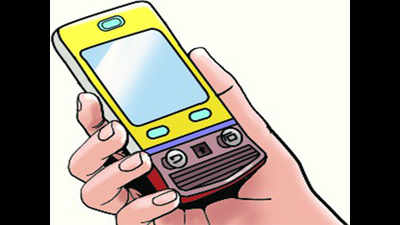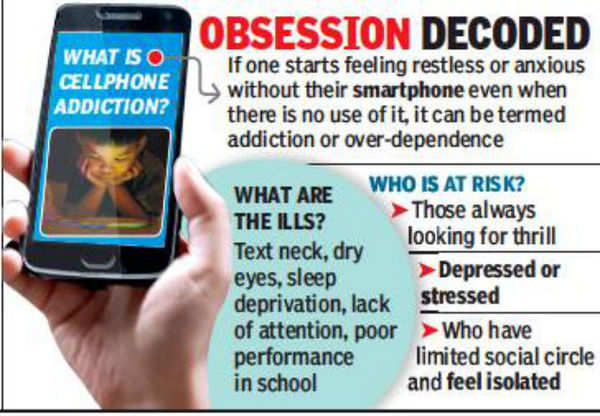- News
- City News
- allahabad News
- Mobile phone de-addiction centre opens in Allahabad
Trending
This story is from July 17, 2019
Mobile phone de-addiction centre opens in Allahabad
Does your child throw a tantrum or is restless when denied access to a mobile phone? If yes, then chances are that he or she is suffering from cellphone addiction.

Representative image
LUCKNOW: Does your child throw a tantrum or is restless when denied access to a mobile phone? If yes, then chances are that he or she is suffering from cellphone addiction.
Addiction to mobile phones and the internet is fast emerging as the root cause of many adolescent behavioural issues, according to mental health experts in the state. The concern can be gauged from the fact that three leading medical centres in UP have already started centres to help children and youngsters get rid of phone obsession.

In January, the Institute of Medical Sciences at BHU in Varanasi launched its mobile phone de-addiction cell while in March, KGMU in Lucknow started the “problematic use of technology” clinic. And, on Tuesday, the Moti Lal Nehru Divisional Hospital in Allahabad launched its Nasha Mukti Kendra for mobile phone addicts.
Impulse control disorder is defined as the failure to resist a temptation or an impulse.
Professor PK Dalal, the head of psychiatry at KGMU, which runs the technology overuse clinic, said the problem of addiction to internet was on the rise. “Since the launch of the clinic, we have seen more than 120 patients. Cellphone overuse is at the root of a number of behavioural issues among children.”
Addiction to mobile phones and the internet is fast emerging as the root cause of many adolescent behavioural issues, according to mental health experts in the state. The concern can be gauged from the fact that three leading medical centres in UP have already started centres to help children and youngsters get rid of phone obsession.

In January, the Institute of Medical Sciences at BHU in Varanasi launched its mobile phone de-addiction cell while in March, KGMU in Lucknow started the “problematic use of technology” clinic. And, on Tuesday, the Moti Lal Nehru Divisional Hospital in Allahabad launched its Nasha Mukti Kendra for mobile phone addicts.
The Allahabad centre attended to over 15 patients, mostly schoolchildren, on Day One. “We are the first government hospital to start a mobile phone de-addiction centre,” Dr Rakesh Paswan, who heads the centre, told TOI. “In the eleventh revision of WHO’s International Classification of Diseases, a condition called impulse control disorder is being elaborated upon. The final draft has included internet addiction as a sub-type of impulse control disorder, which is comparable to problems like kleptomania or compulsive gambling,” Dr Paswan said.
Impulse control disorder is defined as the failure to resist a temptation or an impulse.
Professor PK Dalal, the head of psychiatry at KGMU, which runs the technology overuse clinic, said the problem of addiction to internet was on the rise. “Since the launch of the clinic, we have seen more than 120 patients. Cellphone overuse is at the root of a number of behavioural issues among children.”
End of Article
FOLLOW US ON SOCIAL MEDIA










